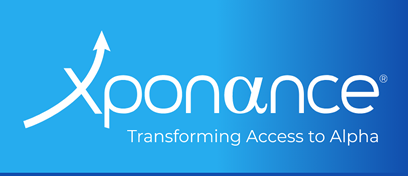Russell 1000 Growth Index Replication Strategy
Q4 2025 | December 31, 2025
Annualized Returns (%)
| QTD | YTD | 1 Year | 3 Years | 5 Years | 7 Years | 10 Years | Since Inception1 | |
| Gross of fees | 1.12 | 18.58 | 18.58 | 31.14 | 15.32 | 21.24 | - | 17.60 |
| Net of fees | 1.12 | 18.55 | 18.55 | 31.11 | 15.29 | 21.22 | - | 17.57 |
| Benchmark | 1.12 | 18.56 | 18.56 | 31.15 | 15.32 | 21.25 | - | 17.60 |
| 1 Inception Date: September 30, 2018 2 Benchmark: Russell 1000 Growth | ||||||||
Characteristics
| Portfolio Weight | Benchmark Weight | |
| Excess return (gross since inception) | 0.00% | - |
| Excess return (net since inception) | -0.03% | - |
| Holdings | 391 | 391 |
| P/E using FY1 est | 33.13 | 33.13 |
| P/E using FY2 est | 27.28 | 27.29 |
| Dividend yield | 0.51% | 0.51% |
| Historical 3 year EPS growth | 30.32% | 30.32% |
| Weighted average market cap in $M | $2,027,057.00mm | $2,026,929.06mm |
Sector Weights (%)
| Portfolio Weight | Benchmark Weight | |
| Communication Services | 12.10 | 12.10 |
| Consumer Discretionary | 13.36 | 13.36 |
| Consumer Staples | 2.44 | 2.44 |
| Energy | 0.29 | 0.29 |
| Financials | 6.40 | 6.40 |
| Health Care | 8.14 | 8.15 |
| Industrials | 5.95 | 5.95 |
| Information Technology | 50.30 | 50.30 |
| Materials | 0.31 | 0.31 |
| Real Estate | 0.43 | 0.43 |
| Utilities | 0.28 | 0.28 |
Top Ten Holdings (%)
| Portfolio Weight | |
| NVIDIA Corporation | 12.20 |
| Apple Inc. | 11.11 |
| Microsoft Corporation | 10.12 |
| Broadcom Inc. | 4.73 |
| Amazon.com, Inc. | 4.53 |
| Tesla, Inc. | 3.80 |
| Meta Platforms Inc Class A | 3.64 |
| Alphabet Inc. Class A | 3.43 |
| Eli Lilly and Company | 2.85 |
| Alphabet Inc. Class C | 2.80 |
Distinguishing Attributes
- Structured and disciplined investment process
- Capabilities to customize index mandates
- Experienced investment team
- Corporate culture built on client service and diversity
Total product assets shown above may include accounts that are not reflected in the Global Investment Performance Standards (GIPS®)* report below. Portfolio characteristics are subject to change, and current holdings may differ. Past performance is not an indication of future results. Returns are presented gross and net of management fees and include the reinvestment of all income. A GIPS report is found at the end of this presentation. Statistics shown above are supplemental information to the GIPS report at the end of this presentation. Results represent preliminary data which is subject to change. For further performance data, please see the Xponance® Russell 1000 Growth Index Replication Strategy disclosures below.*GIPS® is a registered trademark of CFA Institute. CFA Institute does not endorse or promote this organization, nor does it warrant the accuracy or quality of the content contained herein.
Portfolio Management

Sumali Sanyal, CFA

Cameron McLennan, CFA
Senior Director, Senior Portfolio Manager, Systematic Global Equities
About Xponance®
Xponance is a multi-strategy investment firm that is 100% employee-owned and woman-led. Founded in 1996 by industry trailblazer Tina Byles Williams, Xponance has grown to manage approximately $24.3 billion in assets under management (as of December 31, 2025).
Read More
The name “Xponance” is inspired by the word “exponent,” symbolizing the firm’s commitment to "transform access to alpha", amplifying value for its’ clients through investment and client service excellence. The firm offers discrete investment solutions spanning both public and private markets that harness each segments unique efficiencies and alpha potential:
- Direct Equity Management: Tailored Systematic strategies, active and passive—are designed to meet client-specific objectives, with precision and performance.
- U.S. Fixed Income: The “Yield Advantage” platform spans the maturity spectrum, utilizing differentiated, off-benchmark securities to generate income and provide downside protection.
- Global Reach, Local Insight: The Multi-Manager platform, offers global and non-U.S. equity strategies, where Xponance partners with entrepreneurial and emerging managers to uncover diverse sources of return.
- Alternative Investments: Xponance Alts, the firm’s alternatives subsidiary, delivers GP Capital Solutions to a broad array of diverse firms across private equity, private credit, real estate, and infrastructure arenas
- Scalable investment manager insights: Fintech subsidiary Aapryl, empowers institutional investors with a web-based platform for performance analytics, risk management, and manager due diligence to enhance portfolio decision-making.
Investment Philosophy & Process
Founded on a risk-aware philosophy and quantitative investment process, the goal of index strategies at Xponance is to replicate the returns of the client specified benchmark as closely as possible in a cost efficient way and with minimal tracking error. The Russell 1000 Growth Index Strategy is managed on a fully replicated basis where the weight of each stock in the portfolio is in line with its weight in the benchmark. This portfolio holds cash at 0.25% or less. Portfolio managers have the ability to use ETFs to minimize non-equity exposure in the portfolio. The portfolio for this index strategy is constructed using full replication so that the tracking error of the portfolio is minimal, and the portfolio is self-rebalancing, allowing turnover to be in line with the benchmark and transaction costs to remain low. The portfolio is compared and tracked versus the benchmark throughout each trading day to ensure that it reflects the index as closely as possible. Transactions resulting from benchmark changes or changes in cash levels are planned ahead of time and executed in a cost efficient manner. We use data from the index providers to construct and monitor our portfolios.
Portfolio Facts
| Inception date | 9/30/2018 |
| Assets in strategy | $3,062mm |
| Benchmark | Russell 1000 Growth |
| Predicted tracking error | 0-0.25% vs.b/m |
| No. of stocks | B/m |
| Sectors | B/m |
| Annual turnover | 10-20% |
| Min. investment | $10mm |
| Vehicle(s) available | Separately managed |
Trailing period performance as of 12/31/20251
| (%) | QTD | CYTD | 1-Year | 3-Years | 5-Years | 10-Years | Since Inception | Inception Date | |||||||||||||||||||
| Composite Gross | 1.12 | 18.58 | 18.58 | 31.14 | 15.32 | N/A | 17.60 | 9/30/2018 | |||||||||||||||||||
| Composite Net | 1.12 | 18.55 | 18.55 | 31.11 | 15.29 | N/A | 17.57 | ||||||||||||||||||||
| Index | 1.12 | 18.56 | 18.56 | 31.15 | 15.32 | N/A | 17.60 | ||||||||||||||||||||
| 1 Benchmark: Russell 1000 Growth Index Past performance is not indicative of future results. Periods greater than 1 year are annualized. The U.S. Dollar is the currency used to express performance. Investments in public equities involve risks, including the loss of principal invested. This strategy's returns may fluctuate in response to one or more of many factors, that include financial condition of individual companies; the business market in which individual companies compete; industry market conditions; interest rates; general economic environments; portfolio management activities; and data or modeling risk where proprietary models are used in the management of the strategy. Gross of fee returns are presented before management fees, but after custodial fees and transaction costs and include the reinvestment of all income. Net of fee returns reflect the deduction of the actual management fees (including performance-based fees if applicable) from the monthly gross of fee returns. Actual management fees incurred by clients may vary. The standard management fee schedule is as follows: First $50mm: 4 bps; Next $100mm: 3 bps; Next $200mm: 2 bps; Next $250mm: 1.5 bps; Over $500mm: 1 bps. Fees are charged to clients on a quarterly basis. Fees are calculated as a percentage of assets under management and vary based upon the type of product and the total amount of assets under management. The percentage fee is expressed terms of basis points ("BPS") for our products. One hundred basis points equal 1%. All fees are negotiable. All accounts subject to a minimum fee of $10,000. Xponance claims compliance with the Global Investment Performance Standards (GIPS®). To obtain GIPS-compliant performance information for the firm's strategies and products, please contact info@xponance.com. The firm maintains a complete list and description of composites and limited distribution pooled fund(s) which is available upon request. Please refer to the GIPS® report for additional performance information which is included on the next page of this presentation. GIPS® is a registered trademark of CFA Institute. CFA Institute does not endorse or promote this organization, nor does it warrant the accuracy or quality of the content contained herein. | |||||||||||||||||||||||||||
Annual Disclosure Presentation
| Performance Results (%) | 3-Yr Annualized Ex-Post Standard Deviation (%) | |||||||||||||||||||||
| Year End | Composite Gross TWR | Composite Net TWR | Benchmark1 | Composite Gross | Benchmark1 | Number of Portfolios | Composite Assets ($mm) | Total Firm Assets ($mm) | ||||||||||||||
| 2024 | 33.33 | 33.31 | 33.36 | 20.32 | 20.33 | 8 | 2,611 | 20,489 | ||||||||||||||
| 2023 | 42.65 | 42.62 | 42.68 | 20.50 | 20.51 | Five or fewer | 2,353 | 16,613 | ||||||||||||||
| 2022 | -29.12 | -29.14 | -29.14 | 23.45 | 23.47 | Five or fewer | 1,743 | 13,512 | ||||||||||||||
| 2021 | 27.58 | 27.56 | 27.60 | 18.15 | 18.17 | Five or fewer | 2,460 | 14,866 | ||||||||||||||
| 2020 | 38.50 | 38.47 | 38.49 | N/A | N/A | Five or fewer | 1,928 | 12,493 | ||||||||||||||
| 2019 | 36.34 | 36.32 | 36.39 | N/A | N/A | Five or fewer | 1,154 | 5,411 | ||||||||||||||
| 20182 | -15.88 | -15.88 | -15.89 | N/A | N/A | Five or fewer | 846 | 4,026 | ||||||||||||||
| Composite inception date: September 30, 2018. 1 Benchmark: Russell 1000 Growth Index 2 Results shown for the calendar year 2018 represent partial period performance from September 30, 2018 through December 31, 2018. Xponance,® Inc. ("Xponance®") claims compliance with the Global Investment Performance Standards (GIPS®) and has prepared and presented this report in compliance with the GIPS standards. Xponance® has been independently verified for the periods from November 1, 1998 through December 31, 2024. The verification report is available upon request. A firm that claims compliance with the GIPS standards must establish policies and procedures for complying with all the applicable requirements of the GIPS standards. Verification provides assurance on whether the firm's policies and procedures related to composite and pooled fund maintenance, as well as the calculation, presentation, and distribution of performance, have been designed in compliance with the GIPS standards and have been implemented on a firm-wide basis. Verification does not provide assurance on the accuracy of any specific performance report. GIPS® is a registered trademark of CFA Institute. CFA Institute does not endorse or promote this organization, nor does it warrant the accuracy or quality of the content contained herein. On August 31, 2018, FIS Group, Inc. ("FIS Group") acquired Piedmont Investment Advisors, Inc.'s ("PIA") predecessor, Piedmont Investment Advisors, LLC. Xponance®, Inc. ("Xponance®") is an independent, registered investment adviser and is the successor registrant under the Investment Advisers Act of 1940 (the "Advisers Act") to both FIS Group and its wholly-owned subsidiary, PIA. Pursuant to a corporate rebranding and consolidation strategy, Xponance® was established effective April 1, 2020, to leverage the long histories of its predecessor entities in providing customized investment management products to institutional clients. FIS Group (through its former subsidiaries, Fiduciary Investment Solutions, Inc. and FIS Funds Management, Inc.) managed assets since 1996 and PIA (through its former affiliate Piedmont Investment Advisors, LLC) began managing assets in 2000. The firm maintains a list of composite descriptions and limited distribution pool fund(s) descriptions, which is available upon request. Xponance is an investment adviser registered with the United States Securities and Exchange Commission ("SEC"). Our registration as an investment adviser does not imply any level of skill or training and the information in this report has not been approved or verified by the SEC or by any state securities authority. Total firm assets presented through, and including, Calendar Year 2019 represent total firm assets for PIA, prior to April 1, 2020, this composite was managed by legacy firm PIA. Total firm assets presented post April 1, 2020 represent the total firm assets of Xponance®. Russell 1000 Growth Index Strategy Composite contains fully discretionary passive Russell 1000 Growth accounts and for comparison purposes is measured against the Russell 1000 Growth Index. The strategy is to replicate and track the return of the Russell 1000 Growth. The Russell 1000 Growth Index Strategy Composite was created on September 30, 2018. The Russell 1000 Growth is an index composed of large capitalization U.S. equities that exhibit growth characteristics. Results are based on fully discretionary accounts under management. Accounts that are no longer with the firm are included through the last full measurement period such accounts were managed in the composite's style. Past performance is not indicative of future results. The U.S. Dollar is the currency used to express performance. Gross of fee returns are presented before management fees, but after custodial fees and transaction costs and include the reinvestment of all income. Net of fee returns reflect the deduction of the actual management fees (including performance-based fees if applicable) from the monthly gross of fee returns. Actual management fees incurred by clients may vary. The standard management fee schedule is as follows: First $50mm: 4 bps; Next $100mm: 3 bps; Next $200mm: 2 bps; Next $250mm: 1.5 bps; Over $500mm: 1 bps. Fees are charged to clients on a quarterly basis. Fees are calculated as a percentage of assets under management and vary based upon the type of product and the total amount of assets under management. The percentage fee is expressed terms of basis points ("BPS") for our products. One hundred basis points equal 1%. All fees are negotiable. All accounts subject to a minimum fee of $10,000. The three-year annualized standard deviation measures the variability of the composite gross returns and the benchmark returns over the preceding 36-month period. Internal dispersion presented is an equal-weighted standard deviation of annual gross returns of those portfolios that were in the composite for the entire year. For those years when less than six portfolios were included in the composite for the full year, no dispersion measure is presented. Policies for valuing investments, calculating performance, and preparing GIPS reports are available upon request. | ||||||||||||||||||||||
